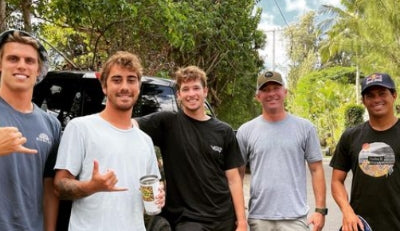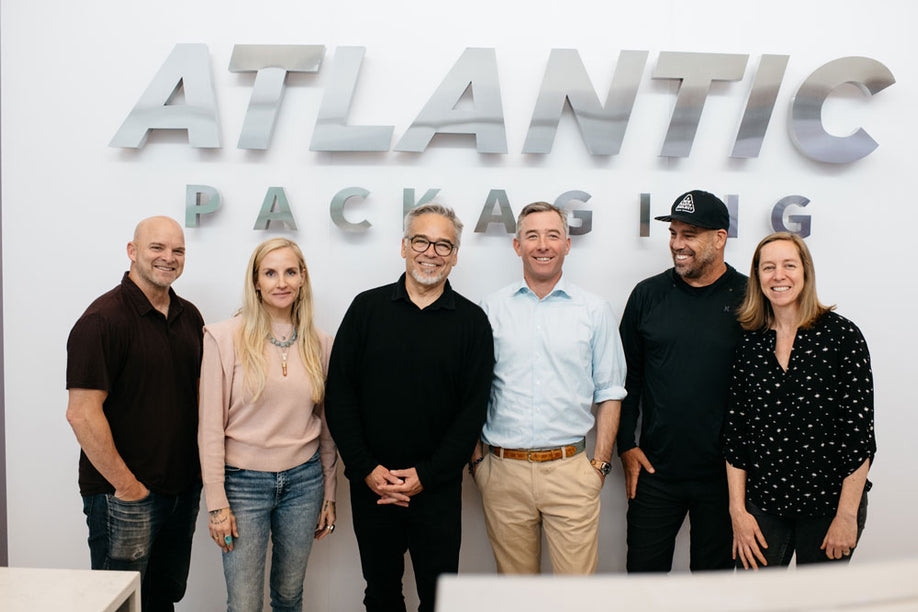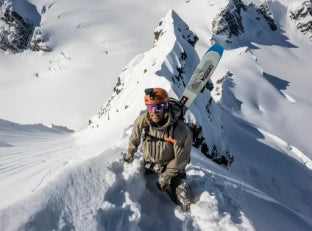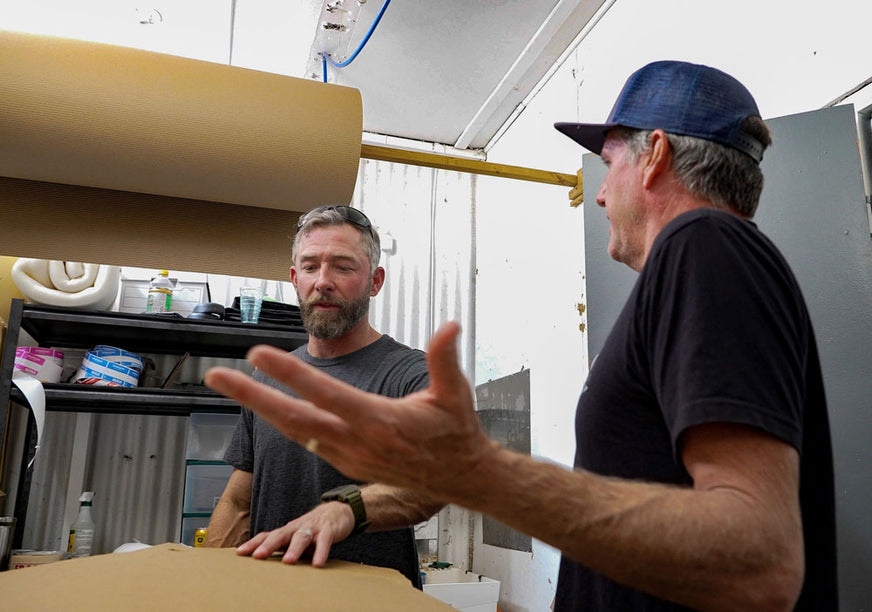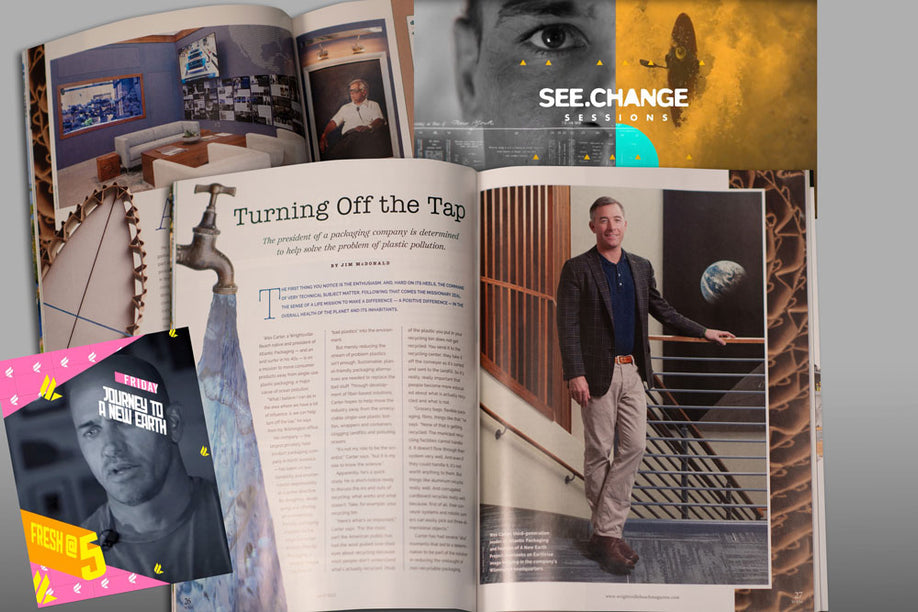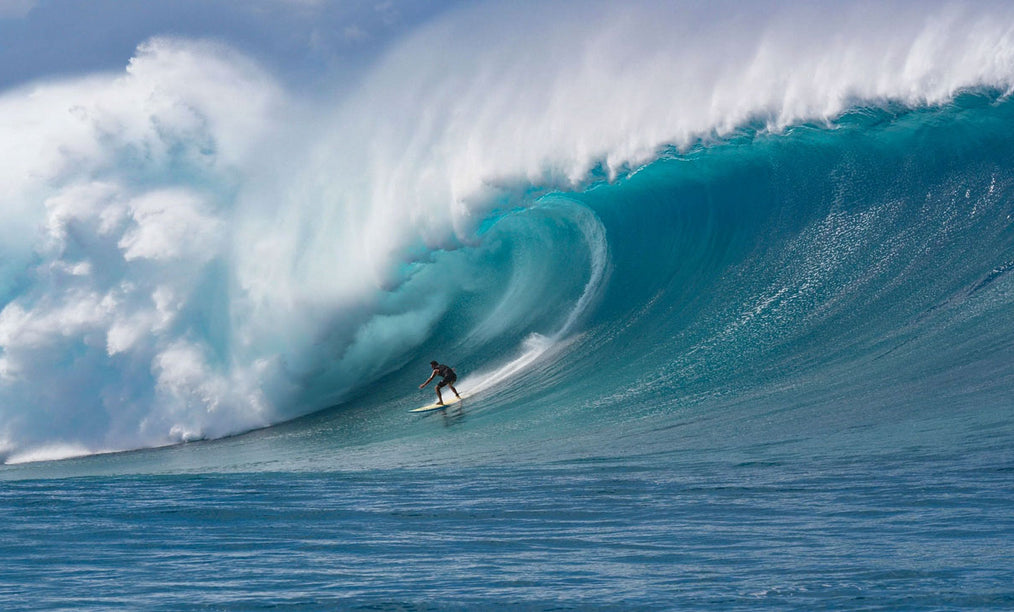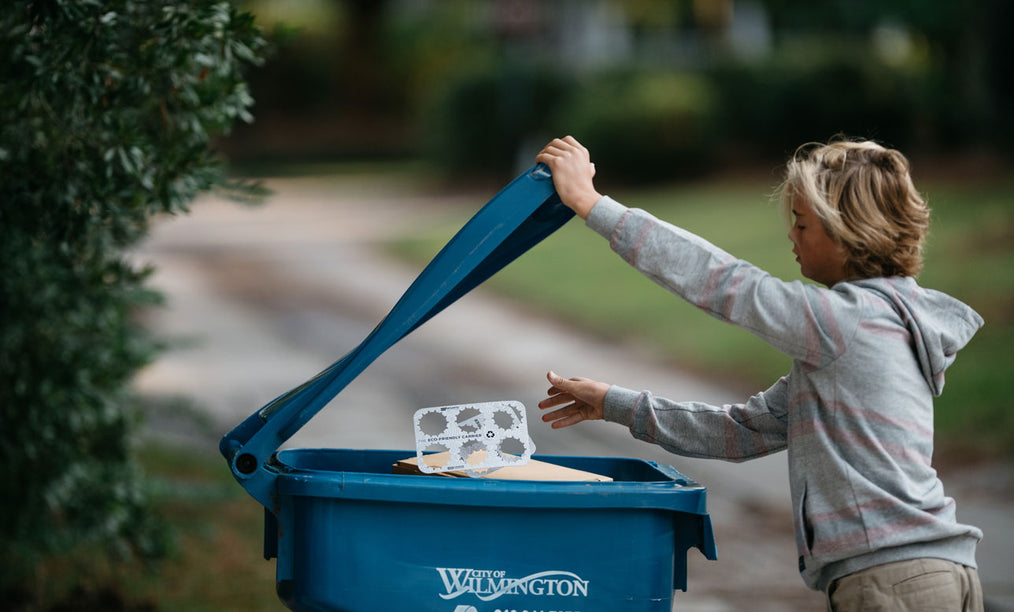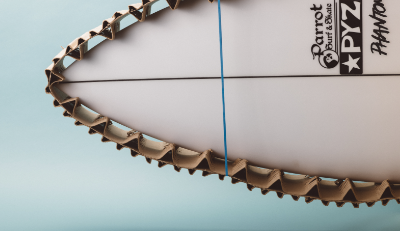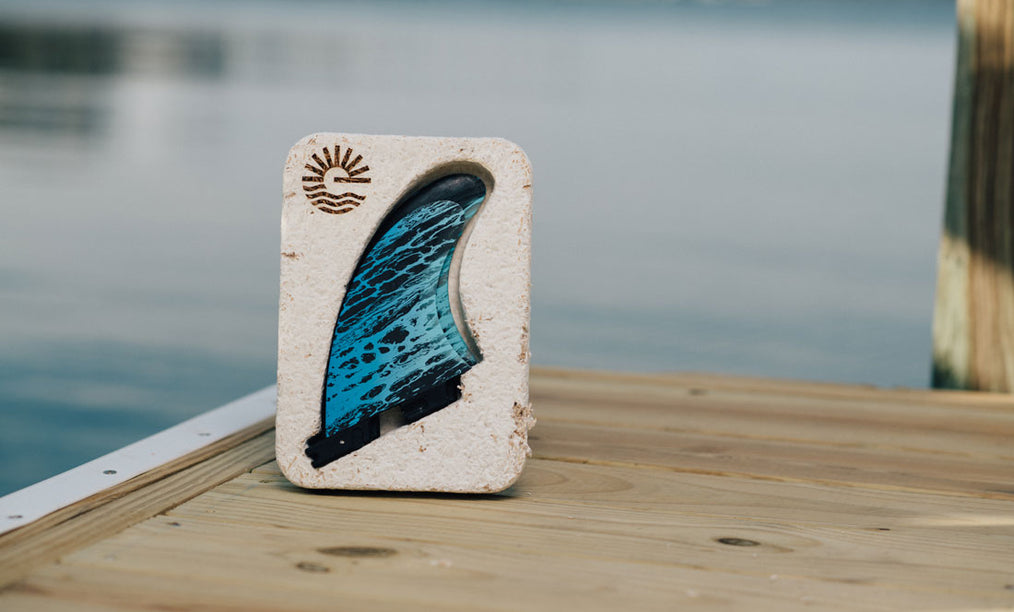In a world where countless skincare products harbor chemicals detrimental to both humans and the environment, being confident about the ingredients in your sunscreen can prove to be a daunting task.
Continue reading below or listen now:

Enter Chris Wilkinson, the visionary founder of Avasol sunscreen, who is determined to revolutionize the way we approach sun protection by offering certainty.
"I didn't set out to make a brand," Wilkinson says. "I was just trying to solve a problem. This whole thing started because we were planning a family vacation, and I just wanted something safe and effective for my baby daughter that also wasn't going to harm the ocean."
Wilkinson is an avid surfer. He's also fair-skinned and short on hair follicles. So sunscreen matters. "For me, surfing is like going to church, and I can't do that very long without sunscreen. So it's a big deal."
As a lifelong surfer and serial entrepreneur, he was deeply disturbed by what he found when he started going down the sunscreen rabbit hole.

"If you take nothing else away, just know that clear sunscreens contain nanoparticles that are not proven safe; in fact, they're potentially problematic for humans and the ocean," he explains. "In simple terms: If it goes on clear, steer clear."
In the end, Chris's little research project lasted well beyond his vacation. He grew so obsessed with the issue that his kitchen became a lab. Soon he had leading chemists in the field helping him make sense of the challenges. "I wanted the latest science," he explains. "I also wanted to know if the claims being made by other brands could be backed up, so I tested every ingredient I got my hands on and sanctioned studies of other sunscreens."
In Chris's words, the results were unsettling. "Sunscreens, like everything else, are a dirty business. Making stuff is dirty."
"First of all, many sunscreens on the market aren't even registered with the FDA, and sunscreens are an over-the-counter drug regulated by the FDA for a reason," he explains. "You can absorb more toxins through your skin than through your digestive tract. We all know we should watch what we eat; well, your skin is no different."
Add to those issues our extremely loose enforcement of labeling laws, and consumers today can hardly be confident that sunscreens are what they say they are.

Troubled by this, Chris embarked on a flurry of independent third-party testing to see if many of them could back their claims. "For starters, the 'non-nano organic' sunscreen was actually full of nanoparticles, which we know are toxic to the base of the food chain and can enter your bloodstream, which makes them very problematic."
As he set out to develop something that could meet his standards, he wanted it validated. "I wanted the third-party lab with the strictest standards, not the rubber-stamp lab, so that's what we did. And we did it with every batch, every time."
At the heart of Avasol's formula is a form of zinc oxide, the all-natural mineral that researchers began to explore back in the 1930s and 40s for sun protection. Zinc oxide and titanium dioxide have long been known for their ability to provide broad-spectrum protection against harmful UVA and UVB rays. Lifeguards in the 60s and 70s made zinc oxide sunscreens famous, but zinc oxide is famous for its bright white appearance, which isn't the best look.

That's why so many clear sunscreens have been developed over the last 40 years. But today, we have a much better understanding of how active and inactive ingredients in those products can cause harm to humans and our ocean environments.
Chris wanted to keep zinc oxide and titanium dioxide as the active ingredients, but also add natural minerals to provide the coloring options the broader surfing community was seeking. Moreover, these additions had to meet his ethical standards for safety and sustainability.
This quest led him on a journey through sun protection history. "My thinking was that indigenous peoples in places like Egypt, Australia, and South America all had traditional ingredients they used for sunscreen, so why not start there to see if they could work. And what's amazing is that's where many of our answers came from.

After extensive testing, experimenting, and iterating, Chris shared samples of his concoction with friends and family, who gave rave reviews. Eventually, some reached high-profile surfers with sizable social followings, and they were so thrilled with the results, they came begging for more. Only then did Chris begin to think he had something worth pursuing.
Of course, he needed to come up with a name for it. Fortunately, his research into all-natural minerals led him down that path. "I was going down so many rabbit holes it just made sense. And the one thing we all have in common is we respect the sun. We love being in the sun and playing with it. So the 'Ava' portion is Samoan for respect," he explains. "And 'Sol' is Latin for sun. I liked the sound of the two together, and the message of respecting the sun."

Simultaneously, Chris decided he wouldn't compromise on quality or his ethical standards. That was already the big problem with sunscreens. "That's when I thought, okay, but if I'm going to do this, I'm not going to compromise. This may be harder to scale, and it may be a pricier product, but people can be confident that it works, and that it's made with the highest quality standards."
But what does that look like?
Here's an example. Just before my interview with Chris, he was talking with a mineral supplier in the Amazon rainforest, ensuring that their farm operated at the highest standards and maintained a good relationship with the neighboring village. "When you're in business, you make decisions every day that have huge impacts. Look, it's way easy to go the cheaper route that pollutes or treats people unfairly. But that's not who I am. I don't want any part of that. I test everything with the strictest labs, and I want to know everything possible about my supply chain."
Today, Avasol's unique formulas come in four different shades, and true to form, they meet the highest quality standards for water protection in both the US and Australia. While regulatory validation means a lot to Wilkinson, feedback from his fellow surfers matters most. They're his best feedback loop. "They've played a huge role in the evolution of this product."

That includes the sustainability efforts he's made with Avasol's packaging. The Surfer's Barrier Stick sunscreen comes in a fiber-based tube that Wilkinson pioneered and developed. Interestingly, the packaging side faces many of the same challenges as the sunscreen. "The thing you realize when you're in business is making stuff is dirty. No matter what. It just is. So you do what you can to limit the impact. In packaging, the big challenge right now is avoiding PFAS, which are forever chemicals and are everywhere. When we were researching suppliers, we were testing samples, and way too many were off the scale on contamination. It's scary!"
The next step for Avasol is obtaining its official biobased status. To date, all their products have earned USDA certification at 100% Biobased, which tracks the use of synthetics and petrochemicals. "I'm so proud of what we've been able to do without using these synthetics and petrochemicals while still achieving the highest level of water resistance and SPF performance."
Today, Wilkinson is proud of his product and packaging. "These things look like finely wrapped Cuban cigars when they're done," he says. "They're literally handmade with love."
Professional surfer Leah Dawson is one of Chris's biggest fans. When she's not in the water, she's usually on the beach in her other role as a professional photographer. So she's always in the sun.

Leah was among the first to try Chris's product. When she met him, she found a kindred spirit. "What I learned from Chris immediately after speaking with him is that just because it's on the shelf doesn't mean it's okay for us. That's a reality we all have to come to grips with and fight against because I want to be able to walk down the aisle of any grocery store or gas station and not be scared everywhere I look."
Dawson has never been paid a dime by Wilkinson. In fact, he's spent next to nothing on marketing. But Dawson is proud to advocate for him because she believes people like Chris and brands like Avasol are beacons for a brighter future.
"By having more demand for products that truly have integrity behind them, we as consumers can change what's on our shelves. That's why I believe in Avasol, and why I have worn it every day for the last ten-plus years, and hope to for the rest of my life."
